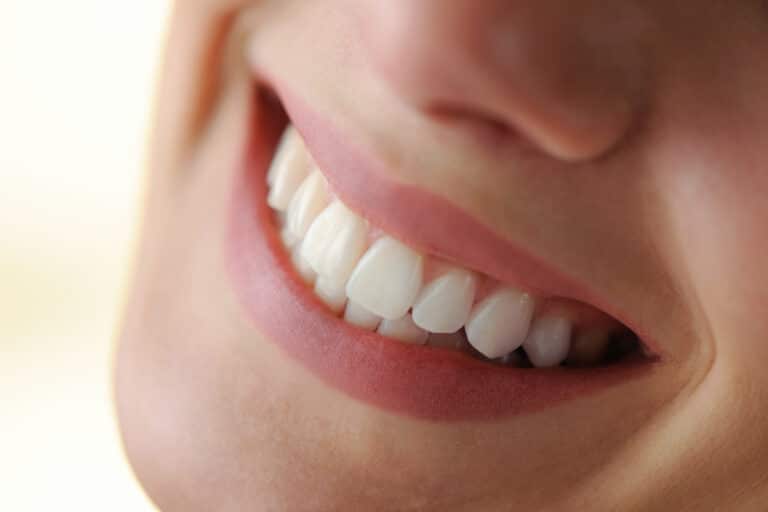Dental veneers are a favorite in cosmetic dentistry, with over 1 million done each year in the U.S. They are thin, custom-made shells that cover the front of teeth. This makes teeth look better and boosts confidence. But how long can you expect them to last?
The life of dental veneers depends on the material. Porcelain veneers usually last longer than composite ones. Taking good care of them also helps them last longer.
Key Takeaways
- The average lifespan of dental veneers ranges from 5 to 15 years.
- Porcelain veneers tend to last longer than composite veneers.
- Proper oral hygiene and regular dental check-ups are essential for maintaining veneers.
- The quality of the veneers and the dentist’s expertise can impact their durability.
- With proper care, dental veneers can be a long-lasting solution for a beautiful smile.
Understanding Dental Veneers
To grasp how long dental veneers last, we need to know what they are. Dental veneers are thin, custom-made shells. They are usually made of porcelain or composite resin. These shells are bonded to the front of your teeth to enhance their look.
What Are Dental Veneers?
Dental veneers are a common choice in cosmetic dentistry. They help fix issues like discoloration, chipping, or misalignment. Porcelain veneers are known for their durability and natural look, which is why many prefer them.
Types of Dental Veneers
There are several types of veneers, including porcelain, composite, no-prep, and removable ones. Porcelain veneers stand out for their stain resistance and durability. Composite veneers, while less expensive, can be fixed more easily than porcelain ones.
How Long Do Dental Veneers Last?
Knowing how long dental veneers last is key to keeping a smile bright and healthy. Veneers are a big investment in your smile and health. Their lasting power is a big part of their value.
Average Lifespan of Porcelain Veneers
Porcelain veneers are durable and look great. They usually last 10 to 12 years. Good care can make them last longer.
Average Lifespan of Composite Veneers
Composite veneers are cheaper but don’t last as long. They usually last 4 to 8 years. The quality of the material and the dentist’s skill matter a lot.
Comparing Veneer Durability
Porcelain veneers last longer than composite ones. Your choice depends on your needs, budget, and how long you want them to last. Things like how well you take care of your teeth, what you eat, and if you grind your teeth affect how long they last.
Knowing about veneer longevity and how to keep them up can help you enjoy your smile for many years.
Factors Affecting Veneer Longevity
The life of dental veneers depends on several important factors. Taking good care and making smart lifestyle choices can make veneers last longer.
Oral Hygiene Practices
Good oral hygiene is key for veneer longevity. Regular brushing, flossing, and dental check-ups help avoid problems that can harm veneers.
Dietary Habits and Lifestyle
What you eat affects your veneers. Eating too much acidic or sugary food can be harmful. Staying away from these foods helps keep your veneers in good shape.
Teeth Grinding and Clenching
Teeth grinding and clenching can damage veneers. Avoiding these habits or using a night guard can protect your veneers.
Quality of Materials and Installation
The quality of veneer materials and the dentist’s skill matter a lot. Using high-quality materials and proper installation means your veneers will last longer and work better.
Prolonging Your Dental Veneer Lifespan
Proper care and maintenance are key to prolonging the lifespan of your dental veneers. By adopting a few simple habits, you can ensure your veneers remain in excellent condition.
Daily Care Tips for Veneers
To keep your veneers looking their best, practice good oral hygiene. This includes:
- Brushing your teeth at least twice a day with a non-abrasive fluoride toothpaste
- Flossing daily to remove plaque and food particles
- Rinsing with an antibacterial mouthwash to prevent gum disease
Foods and Habits to Avoid
Certain foods and habits can damage your veneers. It’s advisable to:
- Avoid biting or chewing on hard objects like ice or pens
- Limit consumption of staining foods and beverages, such as coffee and red wine
- Refrain from using your teeth as tools, like opening packages
Regular Dental Check-ups and Maintenance
Regular dental check-ups are key for maintaining your veneers. During these visits, your dentist can:
- Inspect your veneers for any signs of damage or wear
- Perform professional cleanings to keep your teeth and veneers clean
- Provide personalized advice on caring for your veneers
By following these tips, you can significantly extend the lifespan of your dental veneers. This will help you maintain a healthy, beautiful smile.
Conclusion
Dental veneers can make your teeth look better for a long time. This is true if you take good care of them. The life of dental veneers depends on the materials used and how well you take care of your teeth.
To keep your veneers in top shape, brush and floss regularly. Also, avoid foods that can damage them. And don’t forget to see your dentist often. By doing these things, your veneers can last for many years. This will keep your smile looking great.



